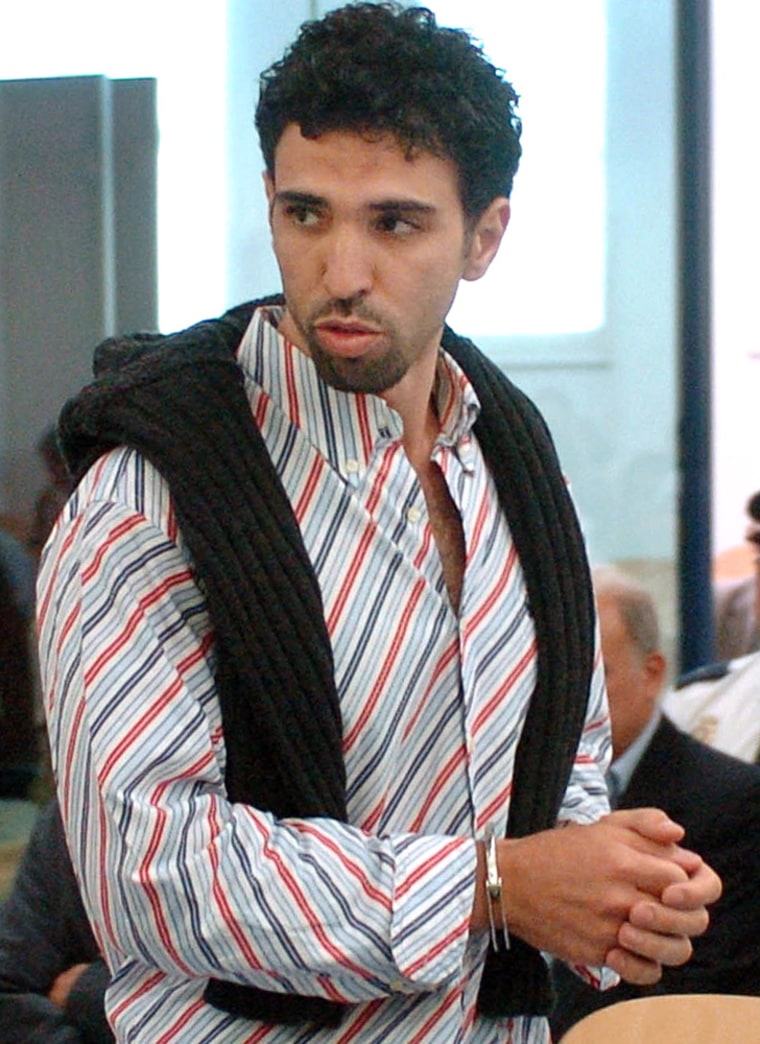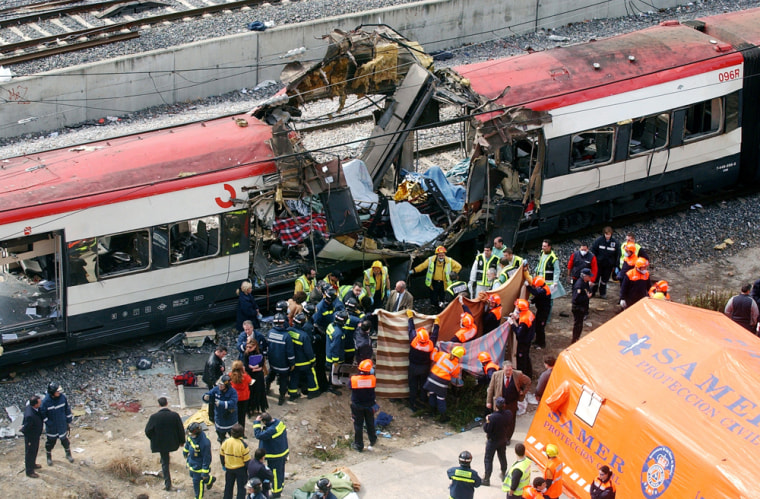A Spanish judge on Tuesday handed down the first indictments in the Madrid train bombings of 2004, charging 29 people with murder, terrorism or other crimes after a two-year probe.
The commuter train bombings blamed on Muslim militants killed 191 people and wounded more than 1,700.
The charges were contained in a 1,500-page indictment handed down by Juan del Olmo, an investigating magistrate at the National Court, Spain’s hub for investigating terrorism.
Six of the 29 men were charged with 191 counts of murder and 1,755 counts of attempted murder. They include Jamal Zougam, a Moroccan merchant who allegedly supplied cell phones used as detonators in the 10 backpack bombs that ripped through four crowded trains on the morning of March 11, 2004.
Five of these six lead suspects are also charged with belonging to a terrorist organization, while nine other men are accused of collaboration.
Country's worst terrorist attack
The bombings were Spain’s worst terrorist massacre and are seen as having brought down a conservative Spanish government that backed the war in Iraq.
Shortly after the attacks, Islamic militants claimed responsibility on behalf of al-Qaida and said they acted to avenge the presence of Spanish troops in Iraq, dispatched in 2003 by then prime minister Jose Maria Aznar.

However, a senior Spanish intelligence official and a Western one closely involved in counterterrorism measures told The Associated Press last month that there was no evidence the cell had any contact with or received any logistical or financial help from Osama bin Laden’s terror network.
Aznar’s government blamed Basque separatists for the attacks even after evidence of an Islamic link emerged. Voters punished his party at the polls in elections three days after the attacks. The victorious socialists quickly fulfilled an election campaign promise and brought the troops home.
Seven other suspects in the case, described as ringleaders who included the ideological mastermind of the attacks, blew themselves up in a suburban apartment three weeks later as special forces who traced them through cell phone traffic moved in to make arrests. One policeman died in that explosion.
In Tuesday’s indictment, the other five men accused of murder include Emilio Suarez Trashorras, a Spaniard accused of supplying the dynamite used in the attacks. He allegedly sold it to the bombing cell in exchange for drugs and cash.
The other four are Rabei Osman, an Egyptian who is now on trial in Italy on separate terrorism charges, and Moroccans Hasan al Haski, Youssef Belhadj and Abdelmajid Bouchar.
